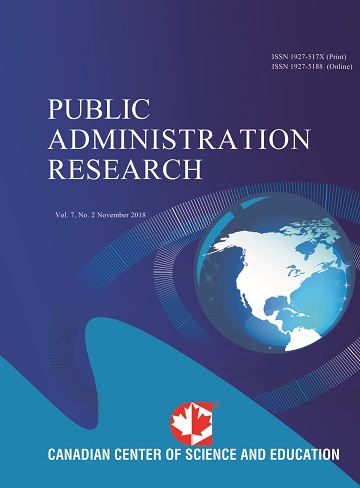Failing to Promote Competition: From the Inaction of the Brazilian National Agency of Petroleum to the 2018 Brazil Truckers' Strike
- Marcelo Vitor Martins de Meneses
Abstract
This article seeks to clarify the political reasons and behavioral biases that led the Brazilian National Agency of Petroleum (ANP) to fail in its institutional mission to promote competition in the refinery sector, which was one of the leading causes of the Brazilian truckers' strike in 2018. Following the steps of Hood (1974), who differentiates internal and external problems in the organization, five hypotheses were formulated to identify the causes of this regulatory failure. These hypotheses allow us to recognize the conflicts that emerge from the relationship between the ANP and its external stakeholders and the internal organizational factors that cause coordination problems and attention bias in the institution's daily decision-making process. Based on interviews conducted with former ANP directors and the application of a questionnaire to employees of that institution, it was found that the agency's lack of independence from the Federal Government made the institution not strive for a more competitive refinery sector. Furthermore, several internal coordination problems and bad decisions by political bureaucrats were also crucial factors in the regulatory inefficiency, making the promotion of competition in the refinery sector outside the institution's priorities. Analyzing the causes of this regulatory failure in Brazil is essential because the global regulatory system has several structural flaws that only become apparent when high-impact events appear. Therefore, this study can provide insights into different regulation domains, allowing countries to assess their regulatory systems to perceive the need for change, preventing their population from suffering from the dysfunctions of public administration.
- Full Text:
 PDF
PDF
- DOI:10.5539/par.v13n1p1
Journal Metrics
h-index (2017): 7
i10-index (2017): 6
h5-index (2017): 7
h5-median (2017): 13
Index
- COPAC
- CrossRef
- DTU Library
- EBSCOhost
- EuroPub Database
- Excellence in Research for Australia (ERA)
- Genamics JournalSeek
- Ghent University Library
- Google Scholar
- Harvard Library
- Infotrieve
- Jisc Library Hub Discover
- LOCKSS
- Mir@bel
- Norwegian Centre for Research Data (NSD)
- Open J-Gate
- PKP Open Archives Harvester
- Publons
- ROAD
- Scilit
- SHERPA/RoMEO
- Stanford Libraries
- Ulrich's
- UniCat
- Universe Digital Library
- UoS Library
- WorldCat
Contact
- Gabriel TaiEditorial Assistant
- par@ccsenet.org
